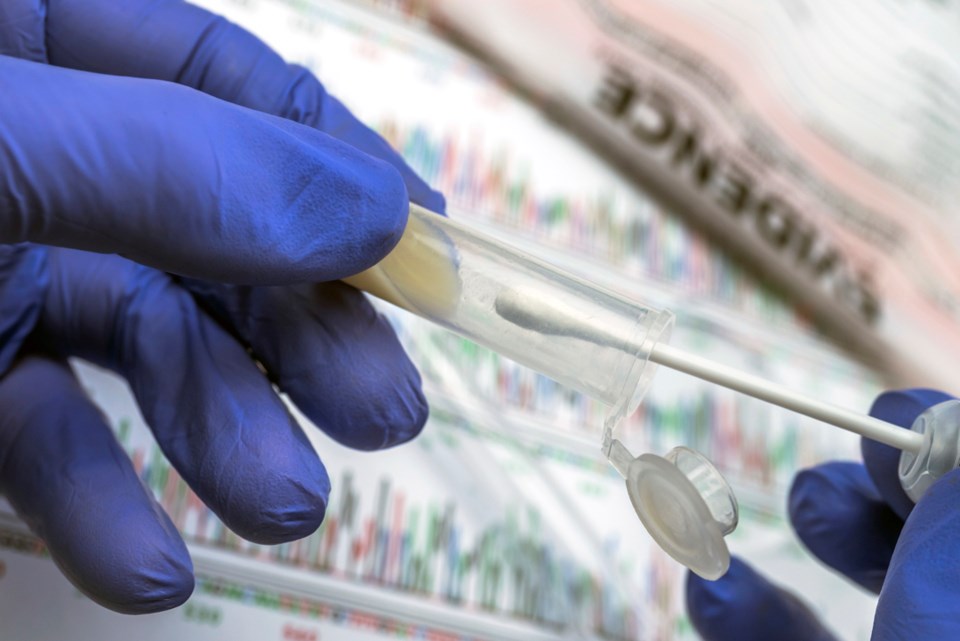The DNA of a man accused of murdering a 13-year-old girl found dead in a Burnaby park six years ago matched samples taken from the young teen’s body, according to a forensic DNA expert.
Christine Crossman, a scientist with RCMP Forensic Laboratory Services in Surrey, took the stand at the trial of Ibrahim Ali in B.C. Supreme Court in Vancouver Wednesday.
She told the jury DNA profiles generated from swabs taken from the girl’s vagina and anus all matched that of Ali.
Of 13 biological samples taken from the body of the young teen, Crossman said the only DNA found was that of the girl and Ali.
Ali is accused of first-degree murder in the death of the girl, whose body was found in Central Park on July 19, 2017, less than two hours after her family reported her missing at about 11 p.m. on July 18, 2017.
Ali has pleaded not guilty.
The victim cannot be identified because of a publication ban.
Crossman wrote the final report on the DNA evidence in the case.
She took over the role of reporting scientist on the file after the retirement of a colleague, who left the lab before a known sample of Ali’s DNA came to the lab in 2018, she said.
Crossman said taking over the file part way through didn’t impact the analysis since she had reviewed all of her colleague’s work and agreed with his findings.
“I needed to be sure that I agreed with the original interpretation,” she said.
The first sample of Ali's DNA the lab analyzed was taken from a discarded cigarette butt submitted to the lab on a priority basis on Aug. 27, 2018, according to Crossman's evidence.
Crossman said DNA taken from the butt matched male DNA found in samples from the slain girl's body.
"Those profiles all matched," she said.
The lab also later received a sample obtained from Ali through police a warrant on Sept. 17, 2018.
Ali was arrested on Sept. 7, 2018, according to testimony earlier in the trial.
Crossman said the probability of someone else having the same DNA profile as Ali was one in 72 quintillion.
"This is a very rare profile," Crossman said.
The Crown's theory is that Ali and the girl were strangers to one another and that he attacked her on a trail in Central Park, dragged her into the forest and strangled her to death while sexually assaulting her.
Ali's lawyers have not outlined their theory of the case.
Crossman has not yet been cross-examine by the defence.
Follow Cornelia Naylor on Twitter @CorNaylor
Email [email protected]




